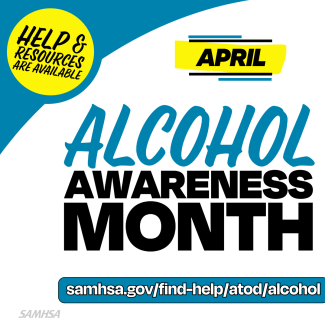The Workplace and Alcohol Awareness Month

As we observe Alcohol Awareness Month, it's crucial to acknowledge the significant impact of alcohol misuse in the United States and how that misuse can potentially affect your workplace and workforce. From preventable deaths to societal costs, the repercussions of excessive alcohol use are profound.
According to the Centers for Disease Control and Prevention (CDC), more than 95,000 people lose their lives annually due to excessive alcohol consumption.1 These fatalities stem from both long-term patterns of heavy drinking and short-term episodes of binge drinking, defined as consuming four or more drinks for women and five or more drinks for men.1
The health consequences of alcohol misuse are far-reaching. They encompass a spectrum of issues, including alcoholic liver disease, various cancers (such as breast cancer), hypertension, accidental poisonings (often through interactions with medications), unintentional injuries, and even suicide.2 Moreover, the harms extend beyond the individual consuming alcohol to affect those around them. Alcohol-related injuries, particularly in motor vehicle accidents, are distressingly common, leading to both physical and emotional suffering for families and communities.
The economic toll of alcohol misuse is staggering, with societal costs reaching an estimated $249 billion in 2010.3 These costs include lost workplace productivity, healthcare expenses, and burdens on the criminal justice system.
As we shine a spotlight on Alcohol Awareness Month, it's an opportune time for workplaces to engage in conversations about alcohol use and its potential risks. By fostering awareness, providing education, and offering support for those who may be struggling, organizations can play a vital role in mitigating the negative impacts of alcohol misuse.
Post the photo attached to this blog on your work’s bulletin board for the month of April!
Resources:
· The National Institute on Alcohol Abuse and Alcoholism’s Rethinking Drinking page has interactive resources to help you examine your drinking patterns.
· AAA and Drug Free America Foundation offer this resource to examine the risks of impaired driving via drugs and/or alcohol.
Citations:
1Drinking too much alcohol can harm your health. Learn the facts | CDC. (n.d.). https://www.cdc.gov/alcohol/fact-sheets/alcohol-use.htm
2Alcohol Regulatory Systems: Integrating support for Public health and Safety - Prevention Technology Transfer Center (PTTC) network. (n.d.). Prevention Technology Transfer Center (PTTC) Network. https://pttcnetwork.org/products_and_resources/alcohol-regulatory-systems-integrating-support-for-public-health-and-safety/
3Excessive Drinking is Draining the U.S. Economy. (n.d.). https://www.cdc.gov/alcohol/features/excessive-drinking.html